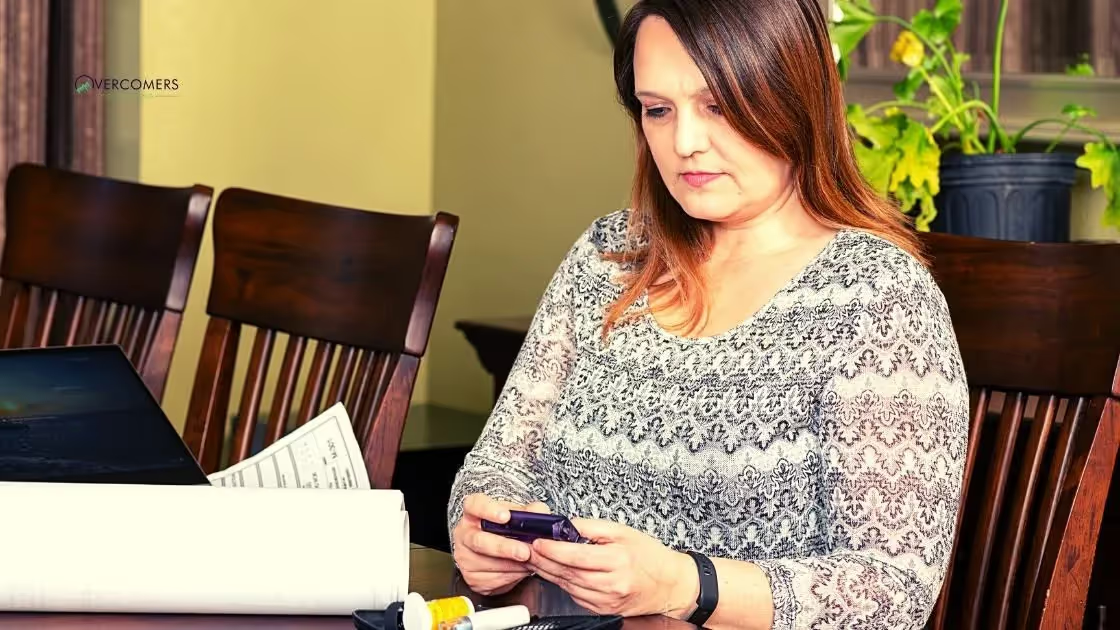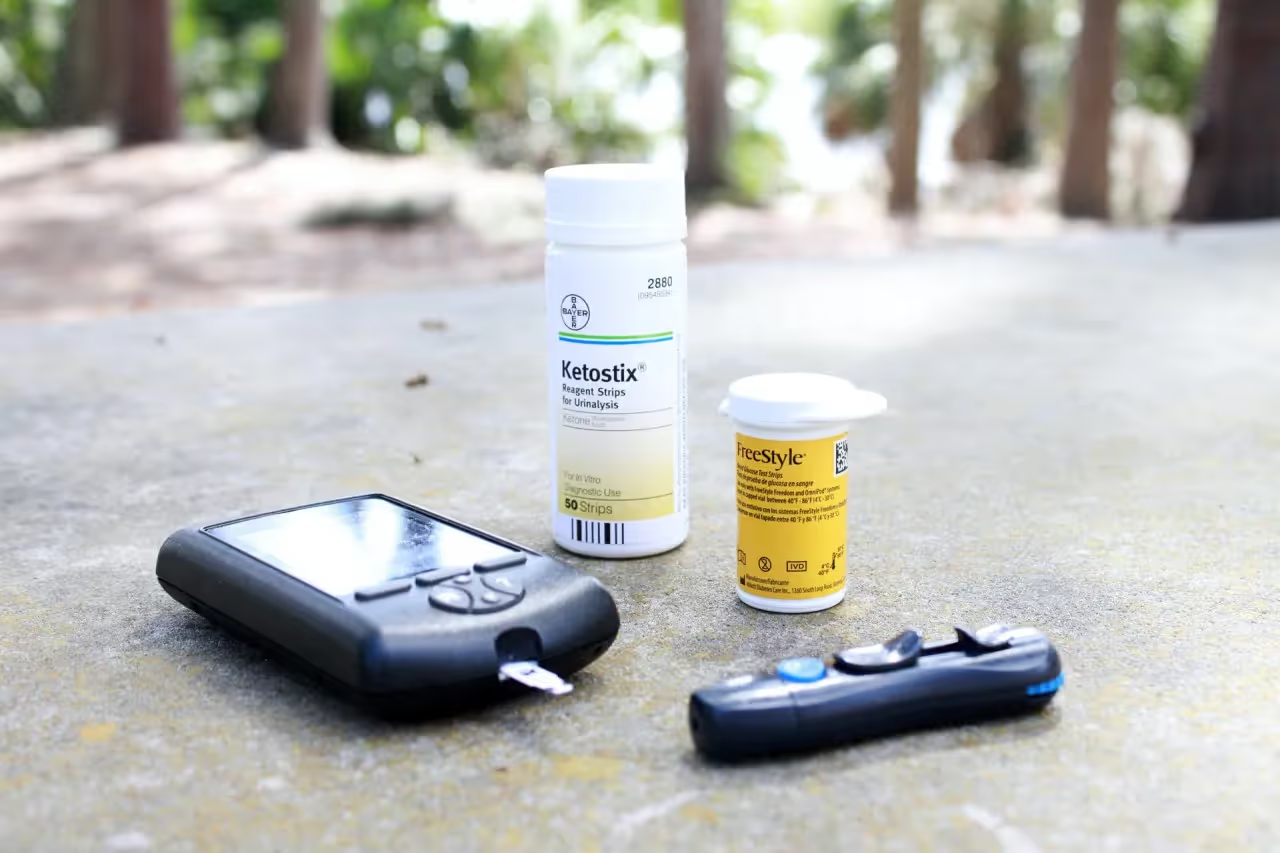Did you know that there is a relationship between Type 1 Diabetes and depression? Studies have shown that people with type 1 diabetes are more likely to...

Did you know that there is a relationship between Type 1 Diabetes and depression?
Studies have shown that people with type 1 diabetes are more likely to experience depression than those without the disease.
While the reason for this link is not completely known and research continues, it's important to be aware of the possibility and be on the lookout for signs of depression in people with type 1 diabetes.
If left untreated, depression can lead to poorer blood sugar control and other health problems.
Type 1 diabetes is an illness that affects the way your body produces and uses insulin.
The symptoms can be difficult to diagnose because they vary by person, but some general signs include excessive thirst (known as polydipsia), extreme hunger with stomach pain or nausea/vomiting when you eat food, and weight loss even while eating large amounts of carbohydrates such as fruit juices.
There is currently no cure available for Type 1 Diabetes; however, research into a cure continues!
As many already know, a diagnosis of this condition can be very difficult to bear.
The struggle with daily living that comes alongside it might make things seem even worse than they initially seemed and soon enough they will find themselves feeling down about everything.
The effects of Type 1 Diabetes on the brain are not fully understood, but it is believed that this condition cannot produce enough ketone bodies to sustain itself in people with Type 1 Diabetes.
As a result, they may become depressed as their body tissues fail them and there are less for neurotransmitters like serotonin or dopamine which help regulate moods.
Research has shown significant links between Type 1 Diabetes and depression due to long-term intensive needs such as daily insulin injections.
What Are the Signs of Depression in Someone with Type 1 Diabetes?
Below are signs of depression in adults with Type 1 Diabetes:
Children and adolescents with Type 1 diabetes can also show the below signs of depression:

SSRIs can be a great option for people with Type 1 Diabetes and depression.
They work by increasing the amount of serotonin in your brain, which helps regulate moods as well as other parts of mental health like anxiety or impulsivity.
People with Type 1 Diabetes and depression who are struggling emotionally can benefit from therapy treatments.
One such treatment that has been proven effective for those with Type 1 Diabetes and depression is Cognitive-Behavioral Therapy also known as CBT.
Cognitive Behavioral Therapy helps individuals with Type 1 Diabetes and depression identify their negative thoughts and replace them with more productive ones through goal-setting exercises, recovered memory techniques, or coping strategies.
It grooms' patients' minds by teaching mindfulness skills like deep breathing while also providing education on managing stress points along the way.
There are many people with diabetes who have depression, but often it's difficult to talk about.
We understand that you might not feel comfortable discussing your mental health or the risk factors for developing this condition.
Support groups provide an opportunity for like-minded individuals in recovery from type 1 diabetes-related illness and distress through honest conversations on anything related: relationship troubles, at any time during our lives' course; work issues such as stress at home when juggling career demands alongside family commitments, dealing w/the physical symptoms of Type 1 Diabetes and depression, etc.
The goal of support groups isn't just relief; they want people struggling emotionally or mentally to be able to remain active participants in their communities as well as maintain healthy living habits so that future episodes can be avoided.
Depression is a serious issue that should not be taken lightly.
If you are struggling with depression and have type 1 diabetes, it is important to seek help from a professional.
There are many treatment options available for those who suffer from both Type 1 Diabetes and depression.
Leave a comment below if you would like to share your story or ask a question.
We would love to hear from you!
https://www.jdrf.org/t1d-resources/living-with-t1d/mental-health/depression/
Yes! There are many effective natural remedies that may be beneficial in managing depressive symptoms, such as participating in regular physical activity, changing your diet, getting adequate sleep, practicing relaxation techniques like yoga or meditation, journaling about your feelings/thoughts/emotions, seeking out social activities/support groups with other individuals struggling with similar issues
Depression is a mental disorder (a common one) that affects millions of people worldwide. It is characterized by persistent feelings of sadness, hopelessness, and loss of interest in activities once enjoyed.In this section, we will discuss the various types of depression, including major depressive disorder, persistent depressive disorder, and bipolar disorder.Gaining a deeper understanding of your depression is the first step in finding the right treatment and support.
Therapy provides many benefits for people battling depression. Research has shown that cognitive-behavioral therapy (CBT) is particularly effective in managing depressive symptoms. In addition, therapy can teach healthy coping skills and provide emotional support during difficult times. It may also be used as part of a comprehensive treatment plan which includes medication as well as lifestyle changes such as regular exercise and improved nutrition.
Ignoring depression can exacerbate symptoms and make it more challenging to manage over time. This can result in a negative impact on your personal, professional, and social life, leading to feelings of isolation and even thoughts of self-harm or suicide.
If your symptoms of depression have been persistent and interfere with your daily life, it's important to seek help from a mental health professional. It's also a good idea to get medical advice if you experience any thoughts of self-harm or suicide.
Addressing depression is crucial because it can significantly impact your quality of life, overall well-being, and ability to function in daily activities. Left untreated, depression can lead to more severe mental health issues, relationship problems, and physical health complications.